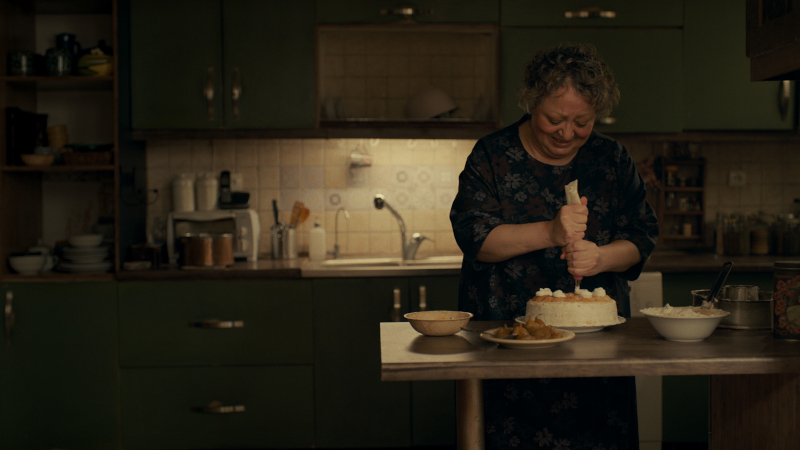Directors – Maryam Mogadam, Behtash Sanaeeha – 2024 – Iran, France, Sweden, Germany – Cert. 12a – 97m
****1/2
An old woman living alone in Iran takes a shine to a taxi driver after learning he has no romantic attachments – out in UK cinemas on Friday, September 13th
Mahin (Lily Farhadpour), 70, likes to lie in. Every morning, she’s woken by her mobile phone and her friend Pouran’s distinctive Vivaldi Four Seasons ringtone. She waters her small courtyard garden, she goes to the market to buy vegetables, she gets a lift home. She talks to her daughter and grandkids on a videolink – her daughter has long since left Iran. In the evening, she has friends round for a meal, including the hypochondriac Pouran who insists on talking about her recent colonoscopy (of which she’s brought along a disc with a video).
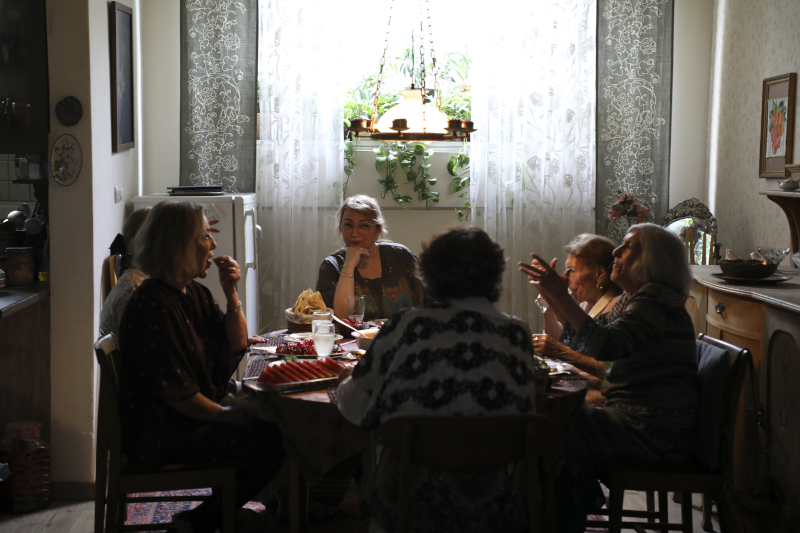
The next day, she gets a cab to a hotel to visit a coffee shop inside its premises, where she is confounded by a menu consisting of a QR code. She visits a park and asks a man there, where do people exercise? It seems they tend to come earlier in the morning than she gets up.
Then, hearing a commotion, she goes to investigate and finds the morality police ordering a few young women into a van for not wearing the hijab properly. She intervenes for one of them (Melika Pazouki), asking the overbearing policeman how he would treat his own mother and, incredibly, manages to stop the woman being taken away. When the grateful woman’s boyfriend turns up shortly afterwards, she watches the two of them walk away blissfully together.
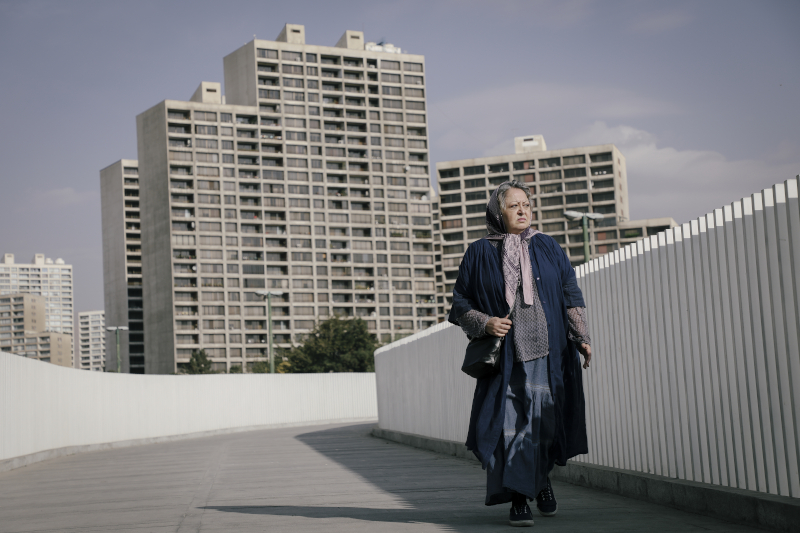
She takes herself to a café which accepts pensioners’ coupons. She watches a group of four men talking at a table, as they converse with a fifth man, Faramarz (Esmail Mehrabi), who sits alone at the next table along. From the conversation, she picks up that he’s single, and a working taxi driver.
She rather takes a shine to him, and after he’s gone, takes herself off to the nearby taxi rank to see if she can get him to take her home. He’s already out on a job, so she waits. By the time he returns, it’s dark, but she talks him into giving her a lift, inviting him in and telling him to park his car a block away so as not to attract attention.
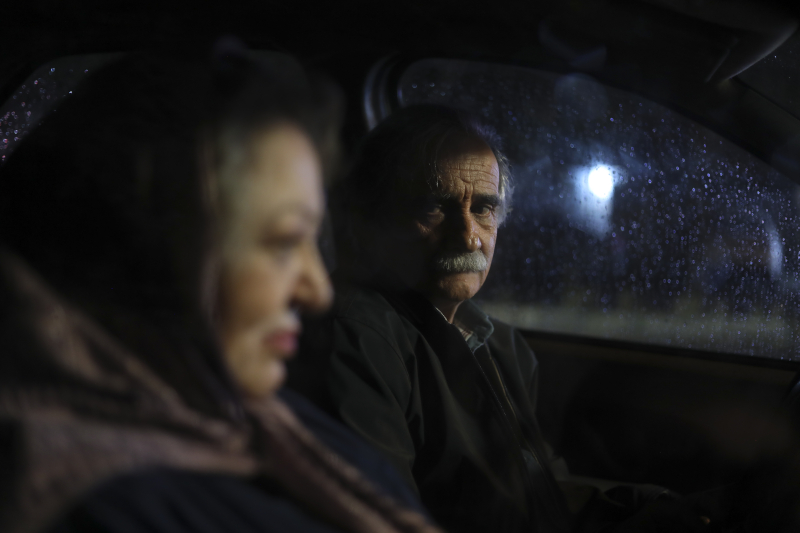
While he parks, she’s visited by a nosy neighbour, a devout Muslim always on the lookout for and likely to report anyone who infringes Iran’s Islamist rules of behaviour. Mahin gets rid of her. Faramarz comes in through her dark courtyard, where the lighting is out, and offers to fix the wiring for her.
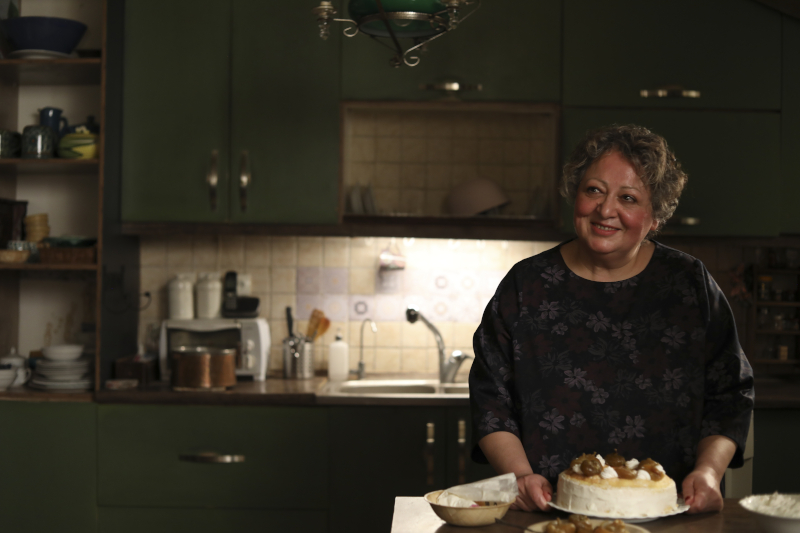
She bakes a cake, something she often does, thinking how nice it would be to have someone with which to share it. She puts on music in the apartment and they dance. She gets out a large bottle of home-brewed wine she’s been keeping for a suitable occasion, ignoring the fact that alcohol consumption is banned. They spend time together in her now lit courtyard, fortunately not visible from the nosy, religious neighbour’s flat. She invites him to stay the night…
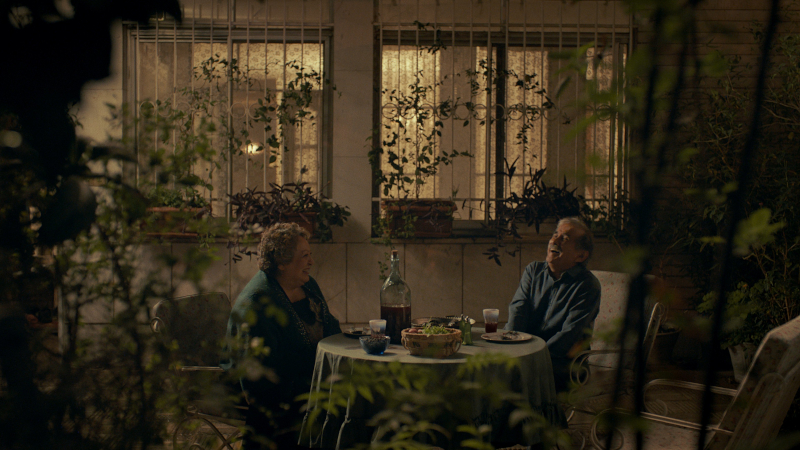
Farhadpour delivers a memorable portrayal of a 70-year-old widow, getting by, spending time with a small group of friends when she can, watching romantic movies on the TV and resigned to the fact that she lives alone. There’s a certain liveliness about her, though, and one can imagine wanting to spend time in her company.
If the film were simply a drama / character study of Mahin as played by Farhadpour, it would already be a winner. For that matter, Mehrabi’s Faramarz is equally fascinating, although he doesn’t appear here until quite some way into the narrative. And there’s a highly satisfying, slow pace to the whole as it proceeds towards its conclusion.
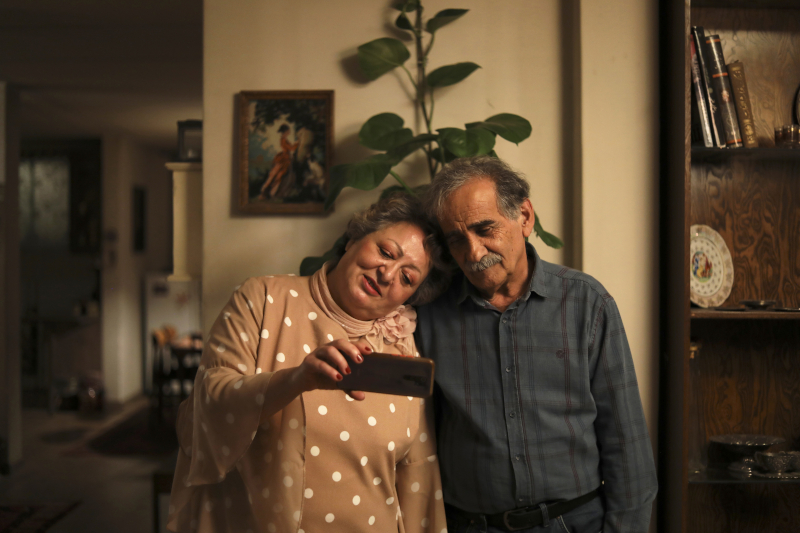
However, the film is something else: an attempt to portray an old woman’s daily life under a deeply misogynist regime. Writer-directors Mogadam & Sanaeeha courageously show facets of living in Iran – the religious restrictions, how ordinary people behave in their own home – that the regime would probably not want people to see. I suspect there’s great danger for Mogadam & Sanaeeha (and their cast and crew) personally in doing this, and I salute them.
Arguably much more impressive, though, is the way the plight of the two protagonists work their way under your skin, and the memorable if beautifully understated performances of the two leads. While it will undeniably resonate with older viewers, if only they can be tempted in to the cinema to see it, it transcends that demographic and deserves a much wider audience. Altogether, an unexpected gem.
My Favourite Cake is out in cinemas in the UK on Friday, September 13th.
Trailer:
